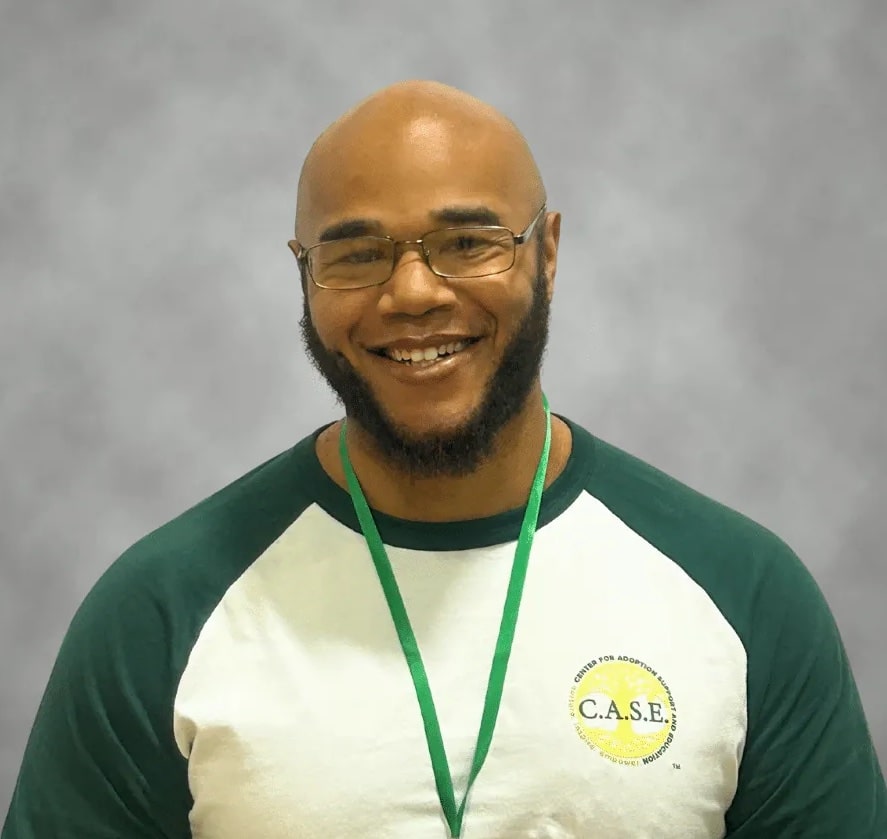From Silence to Strength: How Adoption Competent Services Changed My Story
From Silence to Strength: How Adoption Competent Services Changed My Story
 Written by Tony Parsons
Written by Tony Parsons
The National Center prioritizes the inclusion of lived experience voices in everything that we do. In order to improve mental health services for children and youth, we must all listen to and learn from those who have experienced child welfare and mental health systems. The post below was written by Tony Parsons, a C.A.S.E. Emerging Leader.
Minority Mental Health Awareness Month seems like something many people, myself included (even though I am a Black man, adopted from the foster care system), often forget or overlook. While I am fortunate to have access to mental health support today and have for most of my life, the ability to talk about my mental health has not always been easy and remains something that is still hard for me to do. I am not necessarily shy to admit that I have my struggles or that some days are worse than others. It is simply that being a person of color and an adoptee makes it harder for me to find and be in spaces with people who can begin to understand the impacts that my intersectional identities have on my mental health.
Growing up until age 10, I had no idea that I was adopted. It was also when I found out I was Black. Up to that point, my adoptive family was white, and I assumed I would become white one day as well. And at ten years old, I couldn’t process any of this realistically. It wasn’t until I was 16 that I began to process it; saying it was overwhelming is an understatement. My mental health became so troubled that my family and I decided an inpatient program would be best for me. Even though that experience was difficult, I am thankful that I went through it, as I am not sure I’d be here if I hadn’t. While the therapy I received before, during, and after my stay in the inpatient facility helped, it never addressed one of the key issues that even I at the time did not know was contributing to my feelings of loss and hurt, which manifested in negative actions and required the support of mental health professionals.
Being adopted can be a beautiful thing, and I love my family. However, it also comes with trauma, loss, and hurt that never fade. In my 20s, I found a therapist of color who worked exclusively with former foster youth and adoptive adults, and to say it felt amazing wouldn’t quite do it justice. While I no longer see her (for a variety of reasons), it was a breath of fresh air to work with someone who “gets it” and who can make space for the big feelings that being adopted from foster care and being a Black man in America brings with it. I could speak openly and honestly about how it feels sometimes and how there are days that I don’t want to do it anymore.
I truly hope that more therapists and mental health providers can have this level of understanding because adoption is far more common than many think. The field needs more therapists who are adoption-competent and can work with adoptees and current and former foster youth in meaningful capacities. Often, we feel like we need permission to talk about our past, especially the hard parts or parts we don’t fully understand about ourselves, but if we can’t speak to our therapists or mental health providers about it, then honestly, who can we speak to?
Also, as a Black man living in America, from a young age, we are taught to “be tough” and “deal with it.” So much so that a black man crying (Will Smith, to be exact) has become a meme. In a society that regularly makes fun of men, especially men of color, for having emotions, it is no wonder there is this fear of asking for help. Being adopted somewhat compounds this because we are told to be thankful that we were adopted, but it all leaves scars. If we don’t have a field ready to support us authentically and walk with us on our journey of healing and growing, I fear we condemn so many individuals to a lifetime of being unfulfilled and unsupported.
This Minority Mental Health Awareness Month, I encourage everyone to break the stigma around talking about mental health. The more everyone talks about it, the easier it becomes. In my lifetime, we’ve made strides to bring mental health to the forefront, so much so that people are taking mental health days. We still have a long way to go and we will only get there together, supporting each other in the ways most appropriate and authentic to who we are and how we can help.
